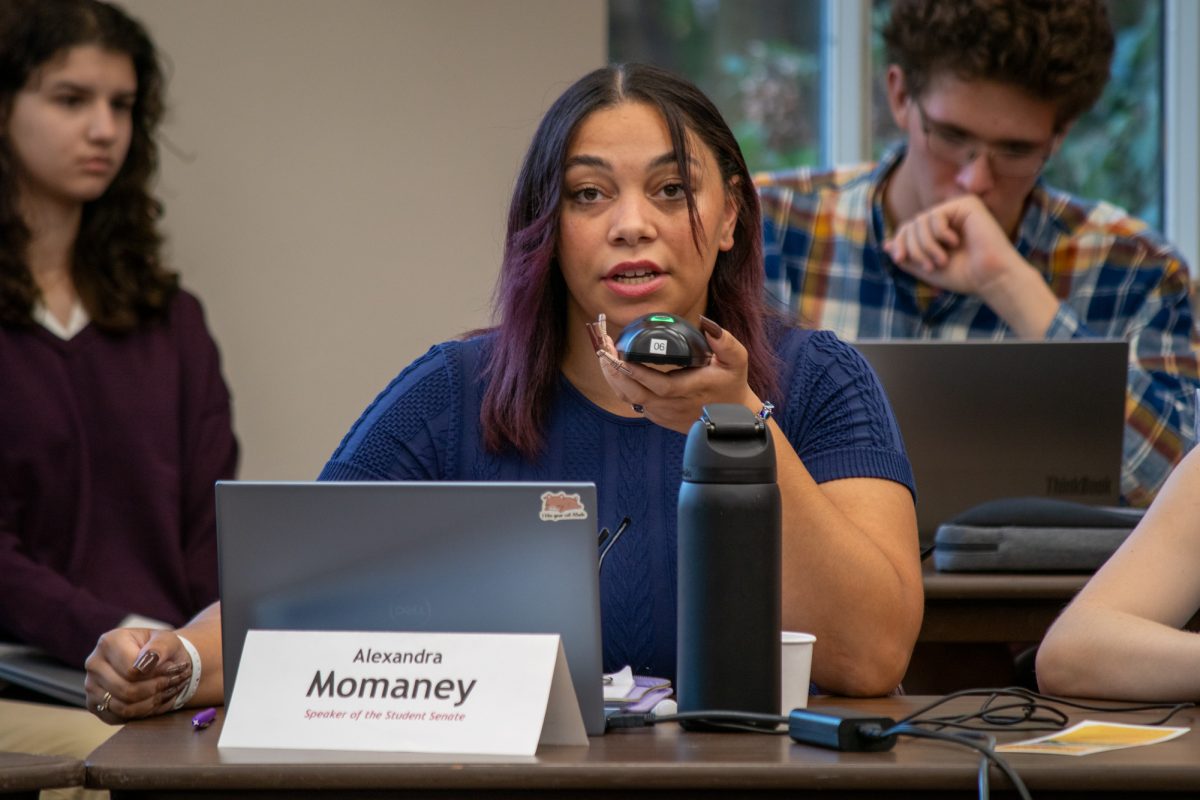Simple words cause problems of their own
February 2, 1999
Niggardly: its synonyms include parsimonious, penurious, stingy, miserly, mean, pennywise, hard-fisted, tight-fisted, tight, sparing.
Most of us would choose any of its synonyms rather than use a word that could so easily offend a vocabulary-impaired audience, but Washington D.C. city aid David Howard didn’t, and now he is unemployed.
We live in remarkably contradictory times.
We dedicate hours and hours to the discussion of cultural sensitivity in classrooms across the country and then we turn around and do something that totally negates all of our progress.
Some people complain, “If it’s not one thing, it’s another,” and I would tend to agree.
There are those who will always find fault with the language of the times, including those who still aim to censor Mark Twain’s “Huckleberry Finn” for its use of the word “nigger.”
I don’t like or use that word either, but I would never suggest taking the book off library shelves because of its inclusion.
Still, I am always sad to see another word from the English language fall into disfavor simply because of its political/social associations.
But the real point here is the bastardization of yet another word.
To bastardize is to make something inferior or corrupt, but many people know it only for its connection to the word “bastard.”
How many people know that the word bastard comes from the Middle English, meaning “conceived in a barn”?
We might assume that most of the illegitimate children of those times were the result of a literal roll in the hay.
Still, contemporary America does not use the word bastard to refer to illegitimate children, which would be politically incorrect (not to mention downright rude).
Instead, we use it to insult a person, to demean, usually without direct reference to actual parentage.
Another word that has been bastardized is bitch, which used to refer to a female dog.
Now only dog trainers use the term in its original sense, and I wonder if even they flinch when they use it in mixed company? I remember my mother washing my mouth out with soap for using the adjective form, bitchin’: “Hey, Mom, that’s a bitchin’ new hairdo!”
It gets down to knowing your audience. I might use a lot of vulgar swear words when I am driving that I wouldn’t think of using in my classroom.
However, the fact that I wouldn’t use them in public doesn’t mean the words have no place in the English language.
I miss certain English words we have lost almost entirely. I miss the word “gay” in its context of joyful. I miss the word “retarded” in its sense of slowed growth. I miss the word “fag” in its cigarette connotation.
Other words I miss because new associations cloud my meaning with younger audiences. I miss the word “motley” in its non-musical sense. I miss “floppy” in its non-computer sense. I miss “head” in its non-sexual sense. And I miss the word “pot” in its non-drug sense.
All these losses are minor in the bigger consideration of what has happened to language in the United States.
I remember the major complaint against the speeches of Vice-President Spiro T. Agnew was that he was pedantic. Twenty-five years later, how many people even know what the word means?
How many times have I inadvertently used a word in my classroom that my students had never heard? The problem isn’t their lack of understanding, but their frequent disinterest in learning the meaning.
In these times of “dumbing down” language so that even the least literate among us can understand our message, something precious gets lost in the translation.
We could say that Agnew used words that were “too big” and most people would understand what we mean. But Agnew’s critics were saying something else about him, something less easily translated into simple terms.
They were suggesting that he was using his education to elevate himself above the average American. The complaints lodged against Agnew were far more political than “too big” might imply.
The English language has the power to convey nuances, but only if we educate ourselves in that language.
As a wordsmith, I am excited to look up a new word in the dictionary, but I no longer practice those words in public.
I might be accused of using words that are “too big” when the actual complaint is that I am not using words that are in common use.
This is why I groan when my students say, “Why don’t you just use the simple word that we all know?”
My answer is that the simple word is not the right word; it is only a bastard cousin.
Kata Alvidrez is a graduate student in English from Los Angeles.






